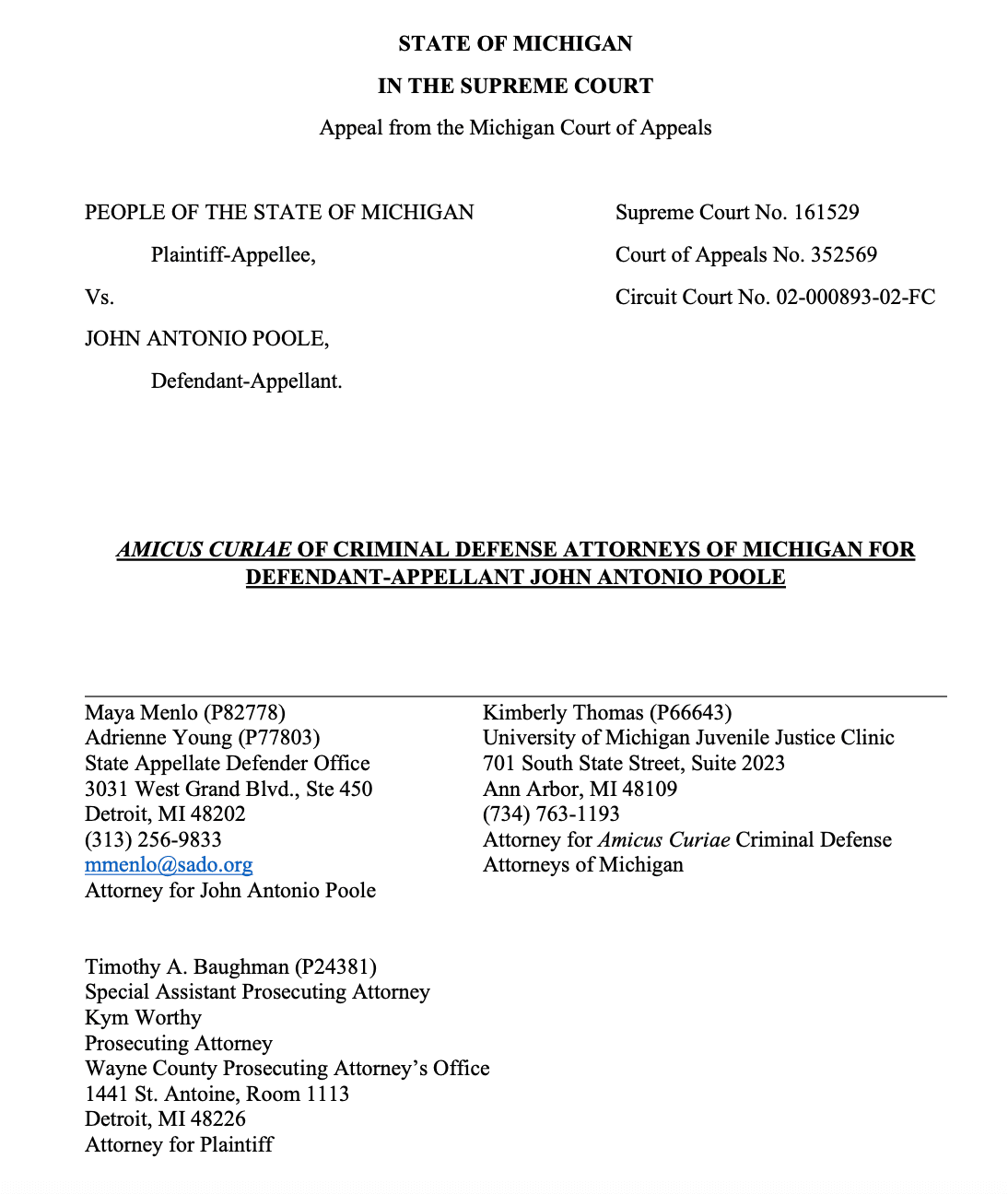
Summary of Argument
Amicus CDAM addresses both questions presented by the Court.
On Question 1, Amicus argues that Poole’s successive motion for relief from judgment is “based on a retroactive change in law,” as defined by MCR 6.502(G)(2) due to the plain language of the provision, the meaning of related provisions of MCR 6.502(G) in the court rules, the function of MCR 6.502(G), and prior court practice. Given the importance of the well-functioning of our state post-conviction system - not just on this legal issue - Amicus delves deeper into Question 1 than the parties. In the alternative, if this Court accepts the Plaintiff’s invitation to adopt a narrow and forced understanding of the “based on” language under MCR 6.502(G), Amicus then encourages this Court to articulate a more capacious understanding of what is retroactive for purposes of state law.
On Question 2, Amicus offers two points. First, Amicus draws on Michigan-specific sources to provide a deeper historical understanding of the broader protection of our state constitution in Art 1, Sec 16. Second, Amicus answers the Court’s second question presented only as to Art 1, Sec 16 with a Michigan-specific focus. Our state constitution bans the mandatory minimum sentence of life without parole for every emerging adult convicted of any first-degree murder that occurs without any individualized inquiry into the impact of that person’s youth and immaturity, the young person’s role in the crime or the nature of the offense, or any other mitigating circumstances.